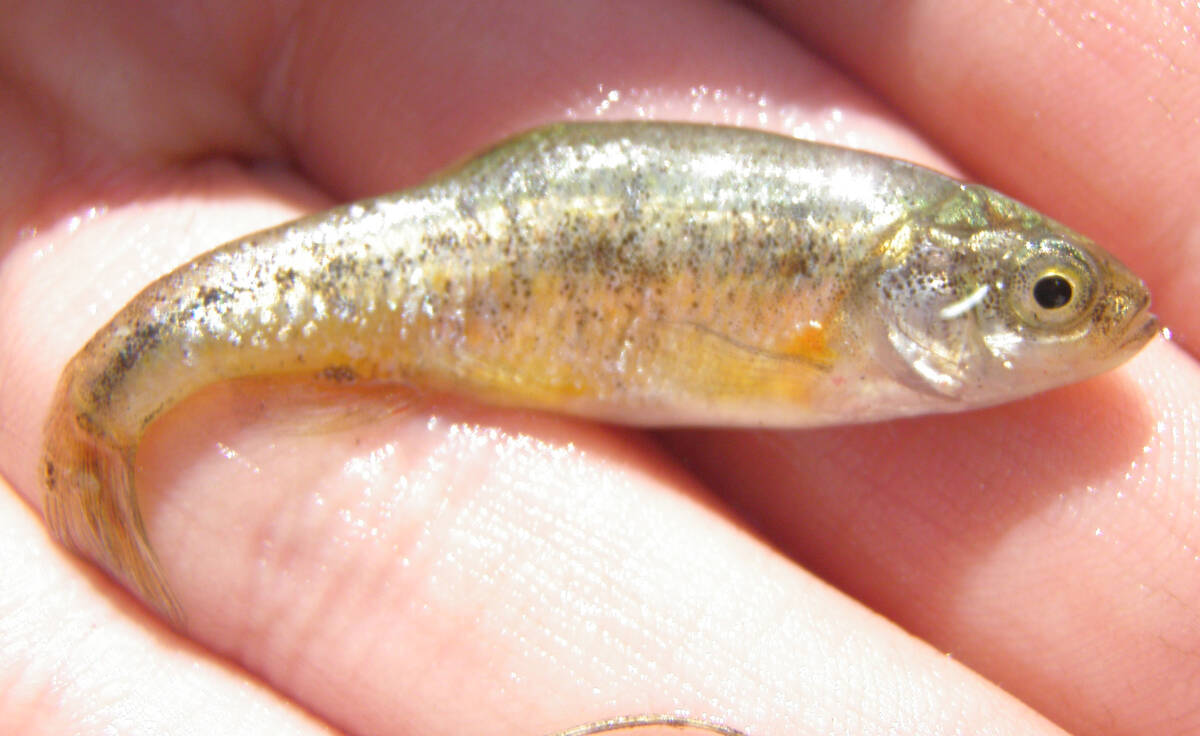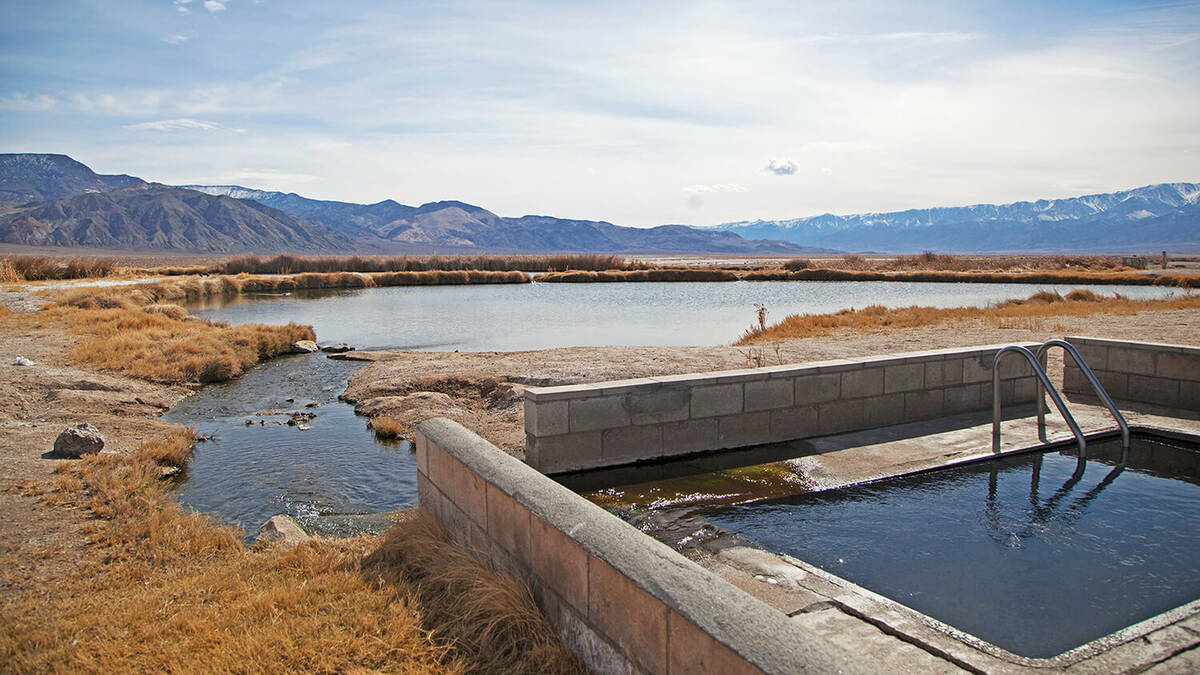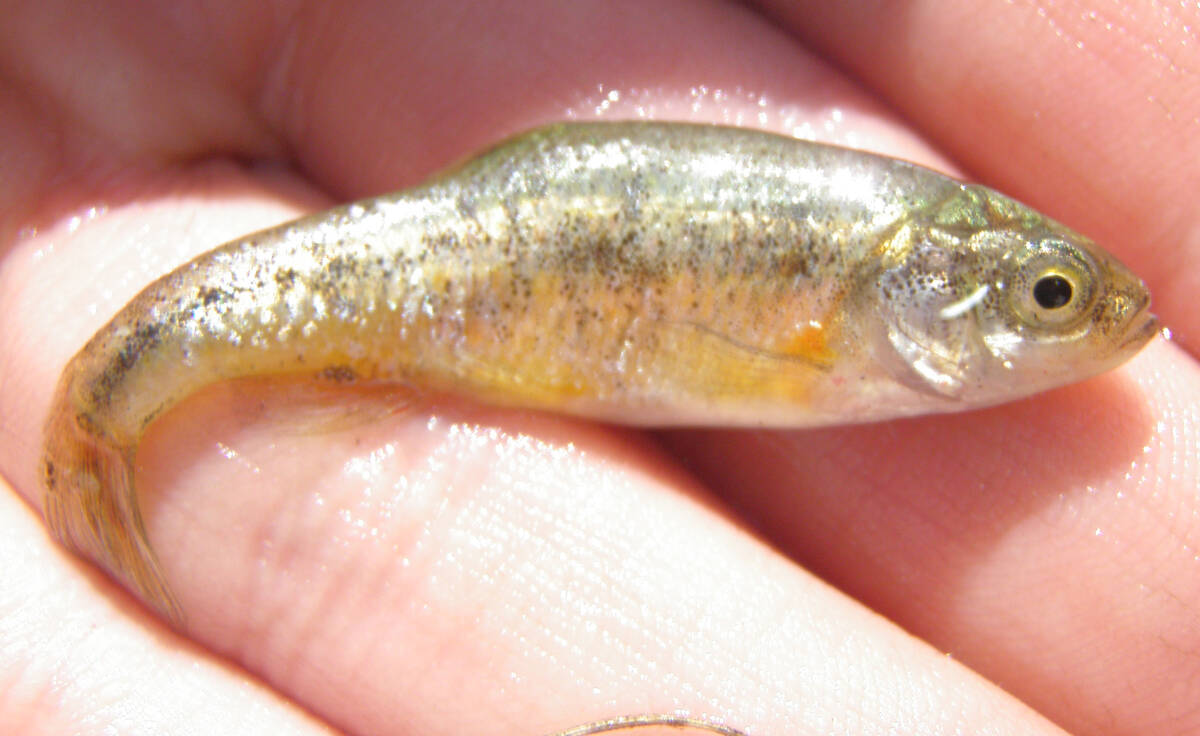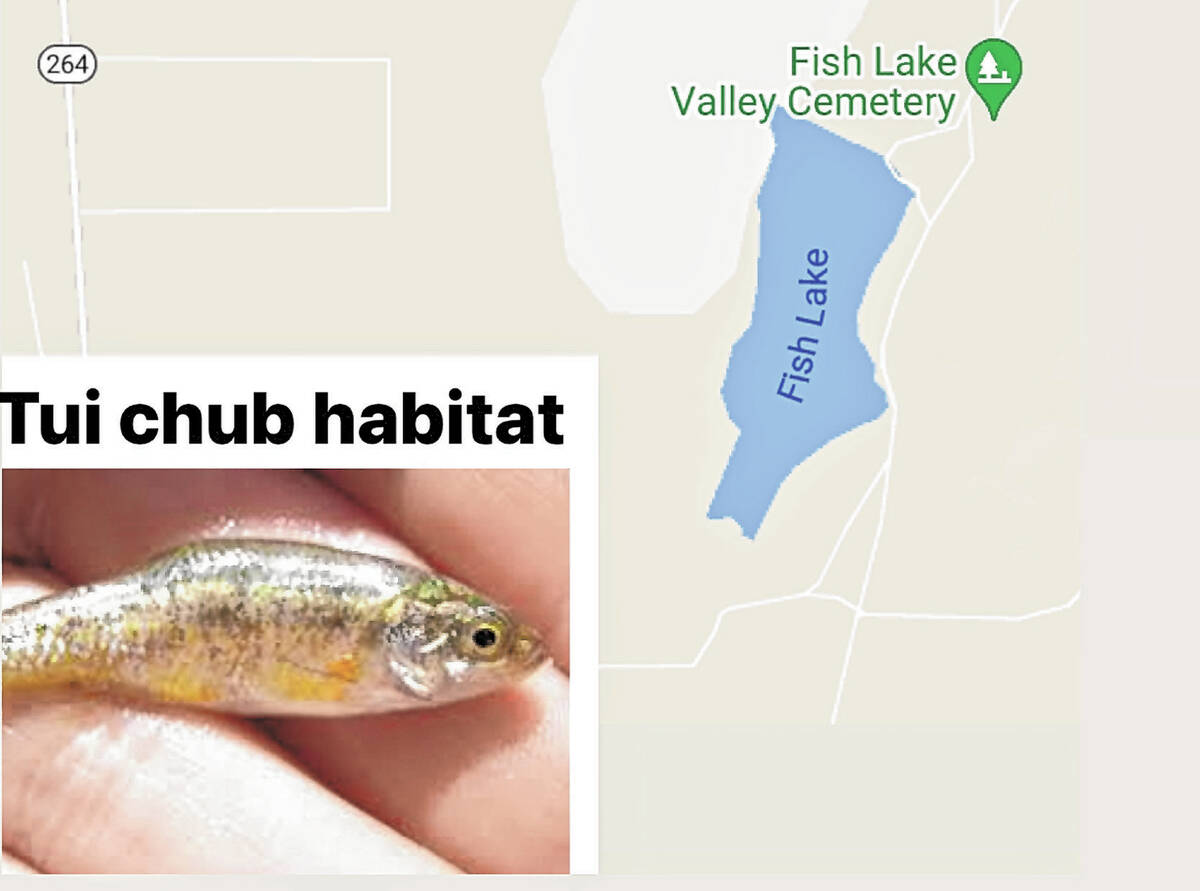Latest lawsuit claims Esmeralda minnows threatened by alfalfa, lithium operations
DYER— Conservationists have filed another lawsuit aimed at protecting wildlife in this area from the environmental threats of alfalfa farming and mining operations. This time, it’s on behalf of a rare minnow believed to be found in just a single spring system of Fish Lake Valley in rural Esmeralda County, about an hour west of Tonopah.
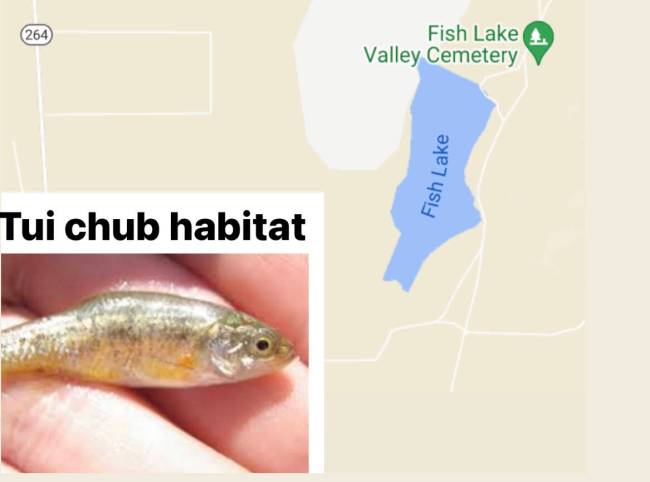
The Fish Lake Valley tui chub is an olive-colored minnow — less than 5 inches long — and its populations have dwindled over the decades because of drought and unsustainable practices from industry.
“Once occurring at several locations, it has been lost from all but one spring system. Significant habitat loss has occurred due to habitat alteration and groundwater development, putting the fish at risk of extinction,” the lawsuit claims. “The sole remaining habitat of the tui chub is jeopardized by groundwater over-pumping, which threatens to dry up the springs that the fish relies on.”
Other threats to the fish include lithium and geothermal energy development, according to the lawsuit.
The lawsuit, filed in a federal court in Tucson, Ariz. earlier this week, claims the U.S. Fish & Wildlife Service is violating the Endangered Species Act by delaying action on these imperiled fishes.
The lawsuit also seeks rulings relating to the protection of several other plants and animals, including another rare fish that’s endemic to Utah’s Bonneville Basin.
The Center for Biological Diversity first sought Endangered Species Act protections for the Fish Lake Valley tui chub in 2021, but NSFW officials have yet to rule on whether the fish should be federally protected.
The delay in any decision prompted this week’s lawsuit, a representative for the Center said.
“The longer the [NFWS] waits to protect these fishes the greater the chance that they’ll disappear forever. We’re in the midst of an extinction crisis and these little minnows are running out of time,” said Krista Kemppinen, a senior scientist at the Center for Biological Diversity.
Lawsuits aimed at protections
The Center for Biological Diversity has spearheaded a number of lawsuits aimed at protecting plants and wildlife in the area and its conservationists have long pressured federal agencies and courts to take action that thwarts and stalls development in the area.
In January, the U.S. Bureau of Land Management officials ruled that Australia-based mining company Ioneer Ltd. had violated regulations near the habitat of an endangered flower in rural Esmeralda County, following years of advocacy and litigation from the Center to secure protections for it under the Endangered Species Act.
In December 2022, conservationists from the Center sued the U.S. Bureau of Land Management over what they claim is the mismanaged use of a popular hot spring that is home to the highly imperiled Amargosa voles about 30 miles west of Pahrump.
In April 2022, the group launched a petition to similarly protect Nye County’s Railroad Valley Toad from extinction.
Conservationists say the frog’s existence is largely threatened by lithium projects.
“[Companies] need to be located in places where they do the least amount of damage, whilst minimizing water consumption, increasing recycling,” Kemppinen said. “We’re definitely not against lithium, because we need lithium for batteries which are needed for electric cars and hybrid cars and storing energy off of solar panels.”
Mining officials, who are planning to develop billion-dollar lithium operations in the area over the next several years, say they have largely worked with conservationists, land managers and other authorities, as well as those who live and recreate in the areas, on how they can be more sensitive to the environment.
Contact Editor Brent Schanding at bschanding@pvtimes.com


